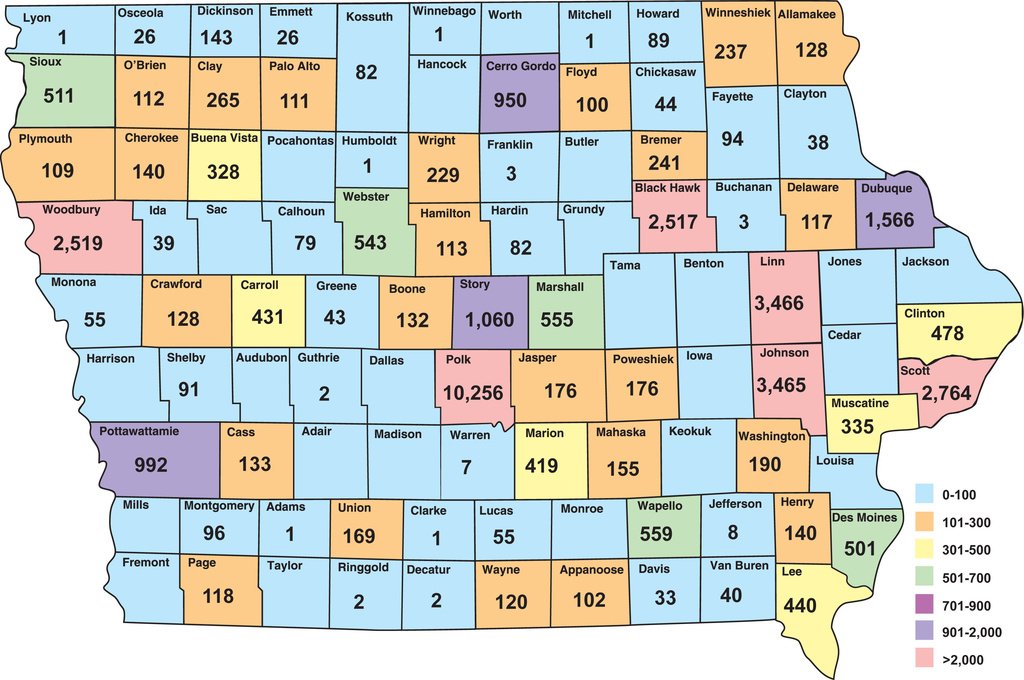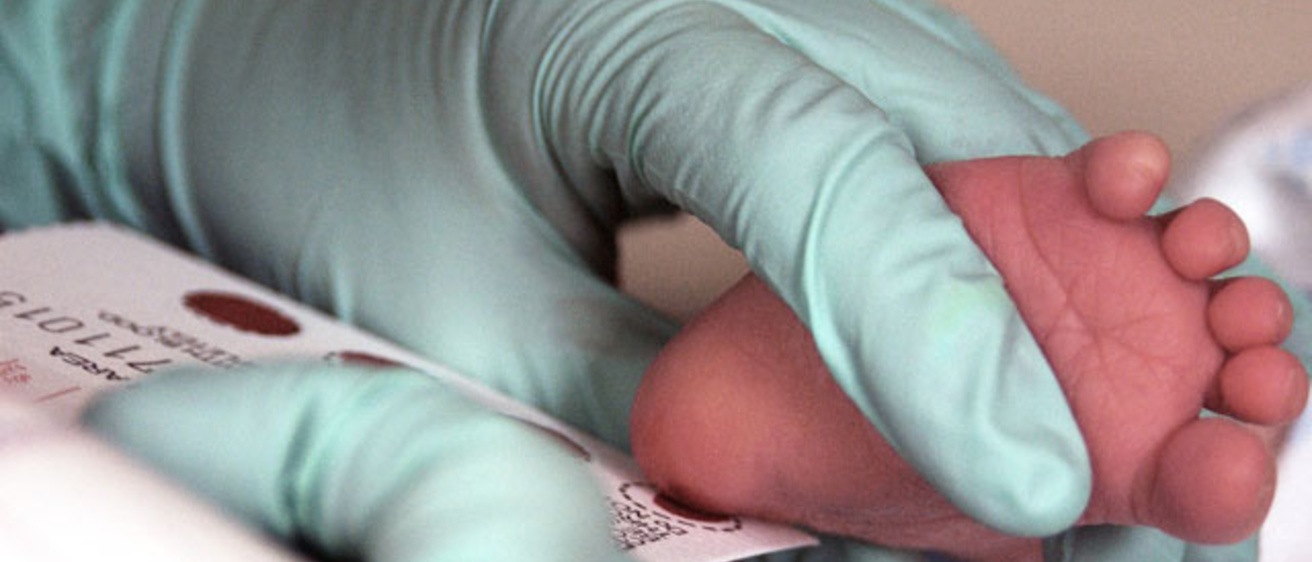Through her work as an Iowa school psychologist, Kelsey Baker is well aware of the educational challenges faced by children with developmental, intellectual, and physical disabilities. She and her husband did everything possible to give their son, Brody, a healthy start. So, they were shocked when, one week after his birth, Brody was diagnosed with profound biotinidase deficiency. If left untreated, this genetic condition can cause developmental delays, loss of hearing and vision, coma, and even death.
See related video: Putting Babies First
Fortunately, Brody’s condition was caught in time through newborn screening provided for every Iowa baby. The State Hygienic Laboratory at the University of Iowa performs this screening in partnership with the Iowa Department of Public Health and University of Iowa Children’s Hospital through the Iowa Newborn Screening Program.
Iowa's screening program began in 1966 with a single genetic test. Today, more than 50 conditions, including the enzyme deficiency that affected Brody, can be detected from a few drops of blood collected via one small heel prick 24 hours after birth.
“We are humbled and grateful,” Kelsey Baker says. “With continuous treatment, Brody now has a chance to live a quality life full of joy, health, and opportunity.”
Fifty years of saving babies
This year marks the 50th anniversary of newborn screening in the United States. During that time, more than 12,000 babies have been saved from death or from a lifetime of intellectual or physical disability, according to the Centers for Disease Control and Prevention. In the 20 years from 1991 to 2011, Iowa screened 807,602 babies, and identified 747 confirmed genetic conditions.
This lifesaving work began in 1963, when Robert Guthrie developed a method to screen for phenylketonuria (PKU), a genetic condition in which the body does not produce enough of the enzyme phenylalanine hydroxylase. Left undetected and untreated, PKU can cause severe, irreversible damage and developmental delays.
Guthrie’s research was inspired by his second son, who was born with a developmental delay, and his niece, who was born with PKU.
Early screening is the first critical step in the process that leads to prompt treatment for babies with these conditions. Iowa established a same-day, statewide courier system that operates 365 days a year to transport specimens from hospitals to the Hygienic Laboratory's Ankeny facility by 10 p.m. Night staff at the Ankeny laboratory begin testing specimens immediately upon receipt from the courier. This assures that results of the screening test are available the next day, so that immediate action can be taken if necessary.
Partnerships for best outcomes
When testing by the Hygienic Laboratory identifies a newborn as potentially having a genetic condition through a presumptive positive screen, the laboratory staff alerts the newborn screening follow-up teams at University of Iowa’s Children’s Hospital. Those teams work with the family’s local health care providers and hospitals to obtain confirmatory testing, evaluation, and education about the disorder.
Iowa’s laboratory and follow-up expertise positions the Iowa Newborn Screening Program as a leader in newborn screening. The program is administered by the Iowa Department of Public Health, and is a partnership with UI’s Children Hospital and the State Hygienic Laboratory, who rely on hospital staff throughout the state to collect the blood spots from newborn babies.
In 1992, the Hygienic Laboratory began providing laboratory services in support of the North Dakota program and, in 2007, for the South Dakota program.
The crucial need for newborn screening and the importance of strong collaborations in producing good health outcomes unfolded in dramatic fashion on Aug. 29, 2005. Flood waters from Hurricane Katrina devastated much of New Orleans, including the Louisiana Office of Public Health and its newborn screening facility. If that program was not rescued quickly, approximately 200 babies born each day in the state would not be screened for potentially life-threatening conditions.
Eight days after Katrina made landfall, the first Louisiana specimens arrived at the Iowa laboratory. This emergency back-up service for the Louisiana program remained in place for almost three years until successfully redeployed back into the state’s newborn screening laboratory.
The next step
Newborn screening in Iowa took another step forward in 2012 when the program initiated the process to add severe combined immune deficiency (SCID) to its mandatory screening panel. SCID is a rare inherited disorder caused by a deficiency or absence of cells that help fight infections.
If untreated, most infants with SCID die before their first birthday. There are more than 15 known genetic causes of SCID, which is estimated to occur in one of 50,000 to 60,000 live births.
"Detection of SCID in the immediate newborn period, before the onset of the first severe infection, can save a baby's life and improve the success of curing this otherwise life-threatening condition," says Mary Beth Fasano, UI clinical professor and SCID medical consultant for the Iowa Newborn Screening Program.
Screening for SCID is expected to begin in 2013 and represents a significant advance in diagnosing and treating this otherwise fatal condition.
From six drops of blood collected shortly after their birth, nearly 40,000 Iowa babies, 10,000 North Dakota babies, and 12,000 South Dakota babies born every year have the best possible start in life. The Iowa Newborn Screening Program and its sister programs throughout the nation routinely provide this gift to families thanks to the pioneering work of Guthrie.

